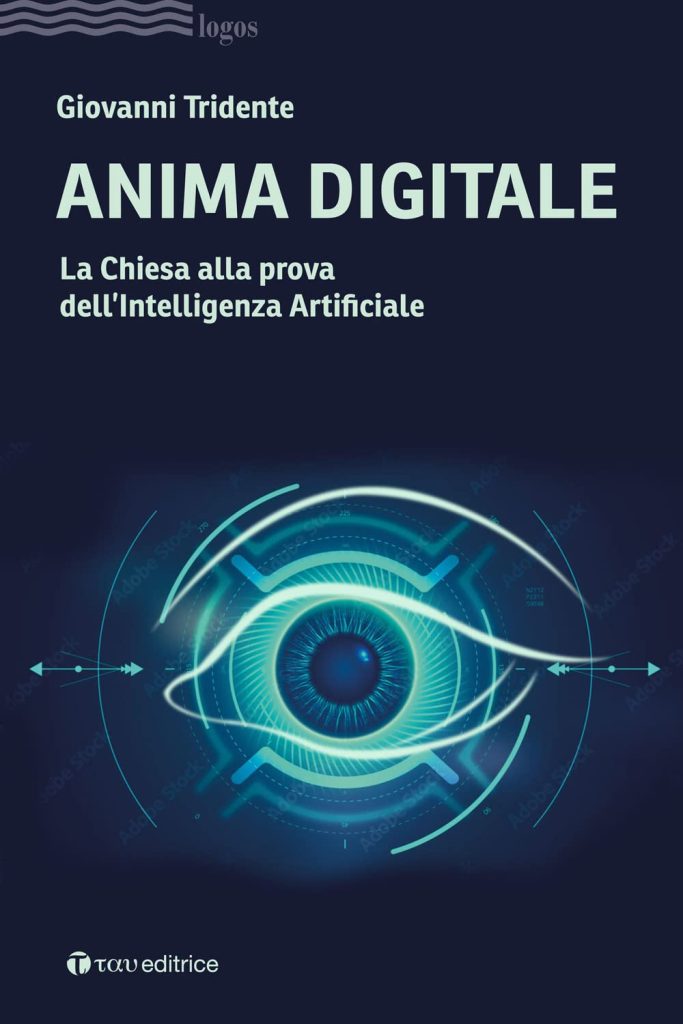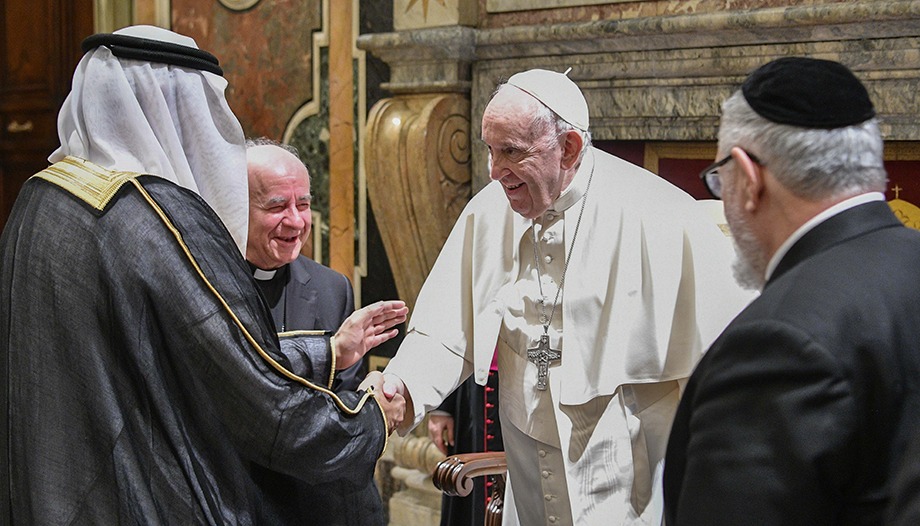"Religions accompany humanity in the development of human-centered technology through a shared ethical reflection on the use of algorithms." This was the comment Pope Francis made on Twitter on the sidelines of the joint signing of the Rome Appeal for AI Ethics by Catholics, Jews and Muslims on Jan. 10 at the Vatican's Casina Pius IV.
Pope Francis himself had received the signatories shortly before in the Clementine Hall: together with Archbishop Paglia, president of the Pontifical Academy for Life (PAV) and promoter of the Appeal, were Rabbi Eliezer Simha Weisz and Sheikh Abdallah bin Bayyah.
Also present were Microsoft president Brad Smith, IBM global vice president Dario Gil and FAO chief economist Maximo Torero Cullen, who themselves had signed the document in 2020 in a first public initiative promoted by PAV.
Technology at the service of the common good
In his speech, the Pontiff reiterated how technology must always be placed at the service of the common good of all, and one of the conditions for achieving this goal is "fraternity", which in turn requires attitudes of justice and peace.
A clear reference to his latest encyclical Fratelli Tutti, but also an appeal to prevent algorithms from influencing civil coexistence in any malicious way.
The Pope gave as a concrete example the practice related to the applications of asylum seekers, specifying how it is not acceptable "that the decision on the life and destiny of a human being be entrusted to an algorithm."
Algorithms that decide fate
This type of practice is widespread in some European countries for use by their respective migration and refugee offices (the Band in Germany, for example) and has also been criticized and assessed as incorrect in some circumstances by AlgorithmWatch, an NGO that studies algorithms and their impact on society. Unflattering judgments were also made by European Digital Rights (Edri), a body that defends digital rights at the European level.
What matters to the Pope, and therefore to the Church, is that "the discriminatory use of these tools does not take root at the expense of the most fragile and excluded". Hence it is good that a dynamic be created throughout the world that can promote and develop a kind of "digital anthropology", based on three specific coordinates: "ethics, education and law" - the three areas of impact of AI The Convocation highlights the different worldviews, as is the case of the different religious traditions.
Rome's call for AI ethics
The Rome Appeal for AI Ethics is essentially one of the latest official documents promoted by agencies of the Holy See on the issues of the Artificial Intelligence and the impact these systems can have on humans.
Promoted for the first time by the Pontifical Academy for Life In February 2020, this declaration had the merit of being signed not so much and not only by academics of the Vatican Academy - as happened in the past for similar documents - but mainly by exponents of the main technological organizations and institutions of public importance, who took it upon themselves to adhere to the document.
Companies need a "soul supplement

As Archbishop Vincenzo Paglia recounts in the book Anima digitale. La Chiesa alla prova dell'Intelligenza Artificiale. (Tau Editrice), the Call starts from a question and a reflection by Brad Smith, President of Microsoft. "He himself confided to me that he needs a kind of 'soul supplement' in the company."
In short, "engineers find solutions, but the solutions are not ethically indifferent: we need to be aware and responsible not only for the use of the devices, but also for the ethical implications present in every phase of their production cycle, which involves different subjects, from researchers to engineers and from politicians to citizens. This is the origin of our relationship of dialogue and collaboration".
This shows, Paglia continues, that "technologies need men and women who are aware and attentive, so that they can project themselves towards improvement, towards positive social and individual development".
The Rome Appeal is also, for the moment, the only text - of the many signed over the years at the Vatican level concerning AI - to have been presented at a conference with journalists at the Holy See Press Office. Submitted to the Vatican Secretariat of State for approval, it led to the creation of the "RenIAssance"The project is now supported by the project.
Available in English, it refers to it as a "document of shared commitments" through which to stimulate the sense of responsibility of organizations, governments, institutions and the private sector for a future in which technological advances and digital innovation are at the service of "human genius" and creativity, without causing their progressive substitution.
At the 2020 signing, IBM's Kelly reiterated on behalf of himself and the company a shared responsibility to ensure that all emerging technologies are developed and used for the good of humanity and the environment.
For the President of Microsoft, it is always important to promote a respectful debate on these issues, including solid ethical principles that can help solve the great challenges of today's world.








